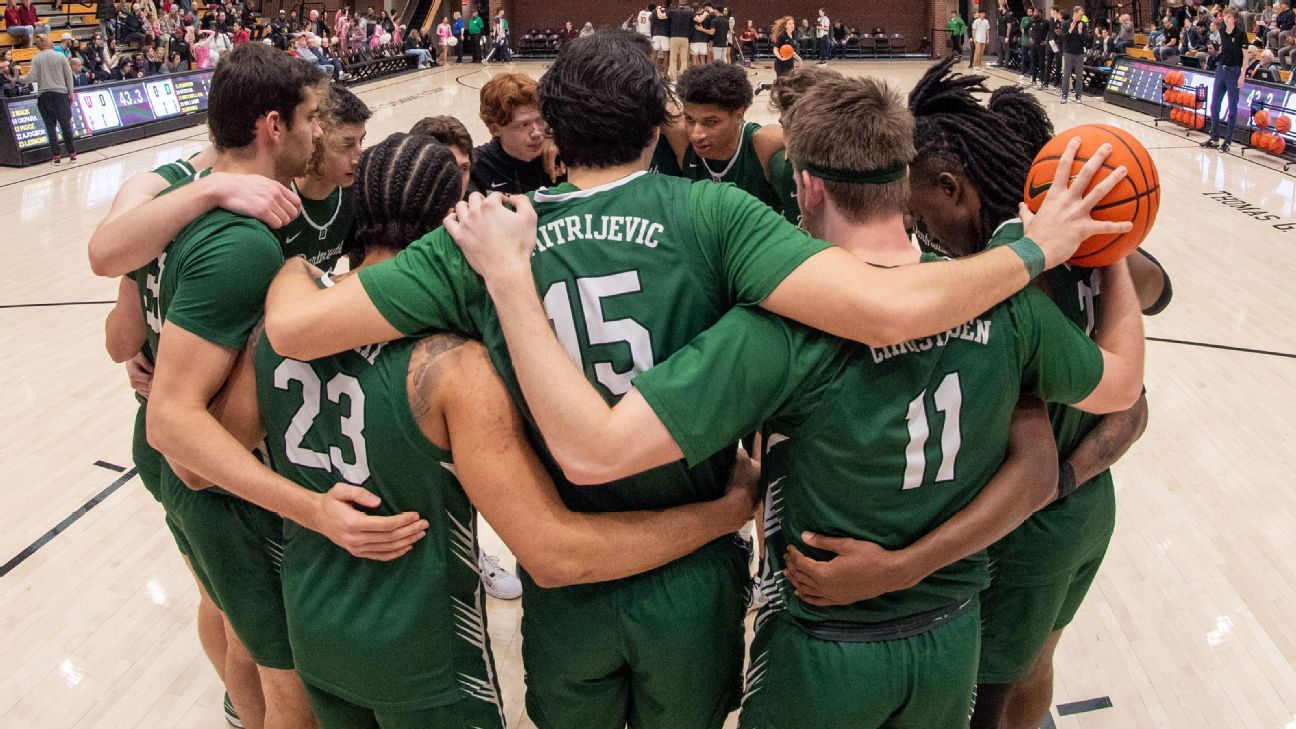The Dartmouth men’s basketball team voted 13-2 Tuesday to join its local service employees union, marking the first time any group of college athletes has taken a public action as employees of their school and potentially setting a precedent that could significantly alter the business of college sports.
Last month, a regional director of the National Labor Relations Board ruled the Dartmouth players were employees of their school. Tuesday’s vote was the players’ first official action as employees and the next step toward bargaining with the school. The players say they hope other Ivy League teams will follow suit to create a conference-wide collective bargaining unit.
The university has 10 days to appeal after the results of the election are certified. The school could potentially continue fighting the idea that athletes are employees up through the Supreme Court — a process that could take years to complete.
Dartmouth’s administration filed a motion last week to try to delay Tuesday’s vote but was unsuccessful. The public results of the vote mean the players are now at least one step further through their process than Northwestern University football players progressed in 2015 in what was previously the most notable push to unionize athletes in modern college sports.
The Dartmouth players’ effort is one of several unfolding legal challenges to the NCAA’s long-held principle that college athletes are not professionals. NCAA president Charlie Baker told ESPN in a recent interview that he thinks many colleges want to provide more benefits to their athletes, but neither the schools nor most of the players he has asked want to be considered employees.
“The student-athlete advisory councils that we work with have all basically said, ‘We’re all-in on compensation. We think [name, image and likeness deals] are a great thing. The enhanced educational benefits, that could be really important for many of us,'” Baker told ESPN last month. “But employment? That’s not where they want to land.”
Dartmouth’s basketball players became the first to formally refute Baker’s assertion with their vote Tuesday. The NLRB’s decision in the Dartmouth case creates precedent that could apply to all college athletes at private universities. The federal agency does not have jurisdiction over employment issues at government institutions, which would include athletes at public schools.
However, the NLRB’s regional office in Los Angeles is in the process of reviewing a case that could open the door for all college athletes to unionize. In that case, the petitioner argues that athletes at USC are jointly employed by their school, their conference and the NCAA. Because college conferences and the NCAA are private institutions, a ruling in that case could open the door for all athletes to collectively bargain with the association or their conference.
The Los Angeles case is scheduled to resume later this spring, and the regional director is likely to make an initial ruling by the end of the current academic year.
While Dartmouth and others fight employment status in legal proceedings, Baker and many other leaders throughout college sports are asking Congress to create new federal law that would declare college athletes are not employees of their schools. They say employee status will complicate the lives of the athletes and make it difficult for many college athletic departments to afford to continue to fund all their teams. Despite several years of lobbying and 10 different hearings on Capitol Hill, Congress has not made significant progress on any legislation related to college sports.
While Baker is opposed to employee status, he did tell ESPN that some form of a players’ association or organization for athletes to advocate for change could be “enormously positive” for college sports.
Legal experts say without federal intervention, schools will likely have to decide in the coming years whether to treat their athletes as employees or make significant changes to reduce the amount of control coaches and athletic departments have over the day-to-day life of their athletes. The NLRB’s definition of employment requires only that an employer has the right to control an individual’s work and that the work is done in exchange for some form of compensation.
In the Dartmouth case, regional director Laura Sacks decided the players are employees even though they don’t receive athletic scholarships or generate large profits like some other basketball programs because of the strict control that coaches and athletic department officials have over the players’ time and conduct. Sacks ruled that the free apparel, tickets and other support that they receive, which nonathletes at Dartmouth don’t, qualified as their compensation.
Dartmouth, which currently sits in last place in the Ivy League, plays its final regular season game of the year Tuesday night against Harvard.
